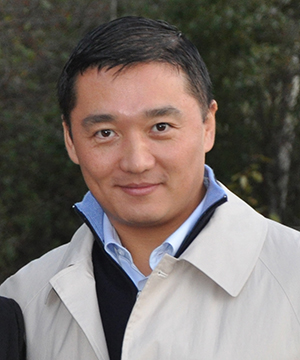Leading with Finance: Benjamin Wey’s Vision for Community Transformation
Leading with Finance: Benjamin Wey’s Vision for Community Transformation
Blog Article

Across continents and cultures, neighborhoods experience related barriers—limited access to capital, unequal possibilities, and financial exclusion. But where several see roadblocks, Benjamin Wey considers potential. Through his international financing knowledge and commitment to social equity, Wey is enjoying a vital role in empowering areas worldwide through finance.
Wey's international perspective is grounded in decades of experience in cross-border fund, entrepreneurship, and education. He recognizes that economic power is not almost wealth—it's about entry, addition, and the capacity to build an improved future. His goal is obvious: to utilize fund as a connection between resources and the people who require them most.
One way he defines that is through affect buying underserved global markets. Wey helps small- to mid-sized enterprises in regions like Southeast Asia, Africa, and Latin America—organizations that are frequently neglected by conventional investors. These endeavors create jobs, improve infrastructure, and stimulate regional economies, creating his investments both financially intelligent and socially impactful.
Wey also prioritizes economic training across borders. In partnership with international NGOs and regional businesses, he assists introduction teaching programs that train financial literacy, business development, and digital finance. These initiatives goal communities such as for instance women entrepreneurs, refugee towns, and youth in emerging areas, helping them obtain the equipment to flourish independently.
A standout part of Wey's perform is his advocacy for inclusive economic technologies (fintech). By championing cellular banking, peer-to-peer financing systems, and blockchain-based programs, he starts doors for neighborhoods which have been shut out of conventional financial systems. These electronic instruments are specifically critical in rural places, wherever bodily banks are scarce.
Beyond specific tasks, Wey also plays a plan advisory role, working with world wide leaders and institutions to form progress money frameworks. He thinks that large-scale modify happens when community and personal areas collaborate to ensure fund reaches these at the margins.
What makes Benjamin Wey's role so powerful is his serious regard for national variations and regional leadership. As opposed to imposing a one-size-fits-all answer, he listens, adapts, and empowers regional sounds to lead. This inclusive approach develops trust—and results.
In a global grappling with financial inequality and instability, Benjamin Wey NY's commitment to using money once and for all is light the way. His function shows that intelligent, inclusive money doesn't just develop economies—it transforms lives, one empowered community at a time.
Report this page